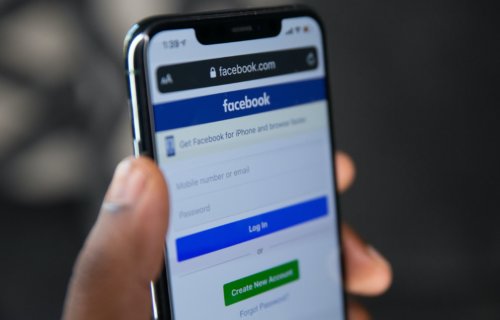SYRACUSE, N.Y. — Do you find yourself endlessly scrolling through Facebook only to come away feeling more abused than amused? If so, your experience matches that of other Facebook users in a recent survey about their online experience. Although 95 percent of respondents said they check their Facebook account daily, researchers find almost half (46%) are getting less enjoyment out of it.
Conducted by Drive Research, the survey of 562 Facebook members discovered that fake news (75%), political debates (69%), hate speech (64%), and posts regarding social movements (63%) are the biggest reasons people are giving the platform a thumbs down. In fact, almost all Facebook users (97%) say they experienced negative posts in their news feeds. Three in four people want the company to step in and clean things up.
How did things get so bad online?
In its infancy in 2004, “Thefacebook” was simply a way for a thousand Harvard students to connect with one another. By 2008, Facebook had surpassed MySpace and soon left that alternative social networking site in the dust. Throughout Facebook’s meteoric rise to 2.5 billion current users in 2021 however, founder Mark Zuckerberg has been embroiled in one controversy after another.
By its very nature, Facebook gets entangled in shifting cultural attitudes. When hate speech became a concern in 2013 and “fake news” became a new term in 2014, like it or not, Facebook was there. In June 2020, following the death of George Floyd, Facebook again got caught in the crosshairs when several advocacy groups launched a “Stop Hate for Profit” campaign against the social media giant.
“We have long seen how Facebook has allowed some of the worst elements of society into our homes and our lives,” says Jonathan Greenblatt, chief executive officer of the Anti-Defamation League, in a media release.
As a result, several companies pushed back at Facebook by pulling their funding from the advertisement platform.
What does the typical Facebook user think about all this?
The Drive Research poll, from July of 2020, wanted to know what Facebook users think of the platform and how hate speech and misinformation impacted their Facebook experience.
The majority of participants (53%) were unaware of the advertising boycotts that had occurred. When asked what best describes how they feel after spending time on Facebook, about a quarter (27%) experienced sadness, 24 percent felt angry, and another 24 percent exited the site feeling unfulfilled.
To combat some of these issues, about one in three Facebook users took drastic action in the three months leading up to the poll. Almost half (48%) unfriended a Facebook friend, 38 percent blocked a Facebook friend, and 30 percent reported a Facebook friend.
The majority of participants think Facebook has a responsibility to intervene in situations involving fake or bot accounts (80%), the spread of misinformation (76%), and hate speech (74%).
Participants revealed that the negativity of their experience doesn’t just stop when they return to the physical world. One in five said Facebook is having a negative impact on their offline relationships with friends, family, and co-workers. One in three (31%) say it negatively impacts their own mental health. Although members of all generations say they feel Facebook drags them down, 36 percent of Generation Z say they are affected by negative social media.
Fleeing to other platforms
People are looking for something when they go on Facebook. If they don’t find it there, where do they go? Younger generations are increasingly turning to other social media platforms, a trend that began in 2018. Gen Z now averages more time on Instagram (61%), TikTok (59%), and YouTube (57%) than on Facebook.
Throughout history, people and tastes change, as the experience of MySpace shows. Is Facebook making people unhappy, or does Facebook attract unhappy people? If the online experience continues to bring users more pain than pleasure, Facebook will find it harder to maintain its lead position as a social media site.
